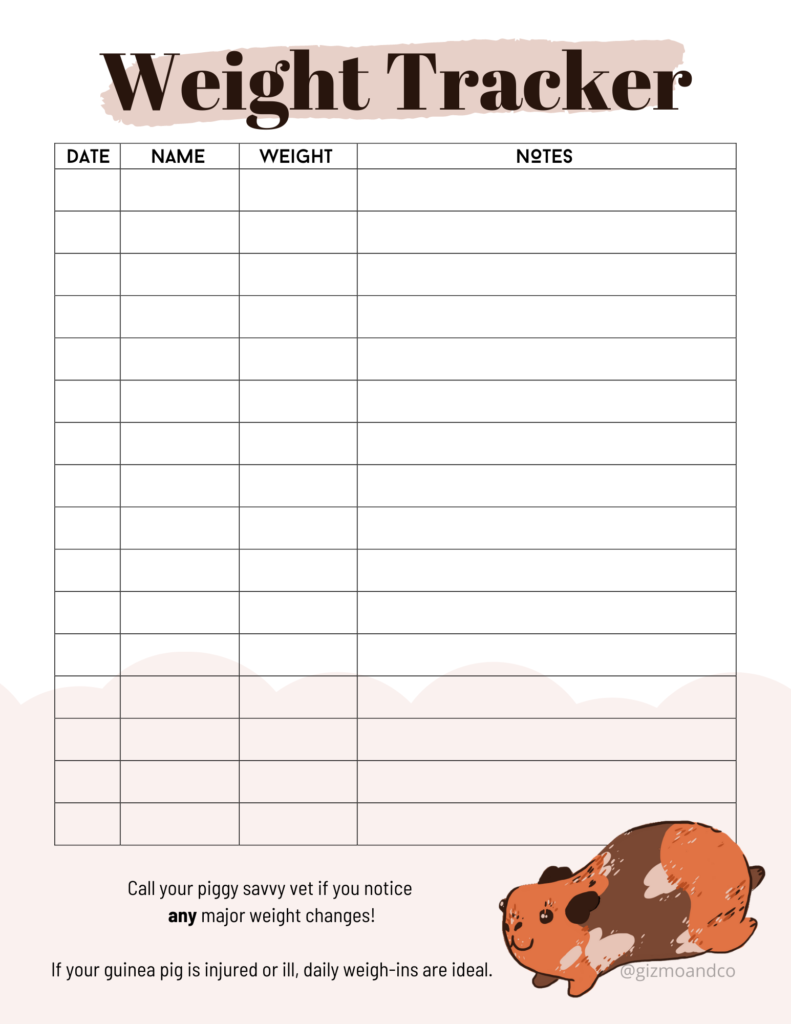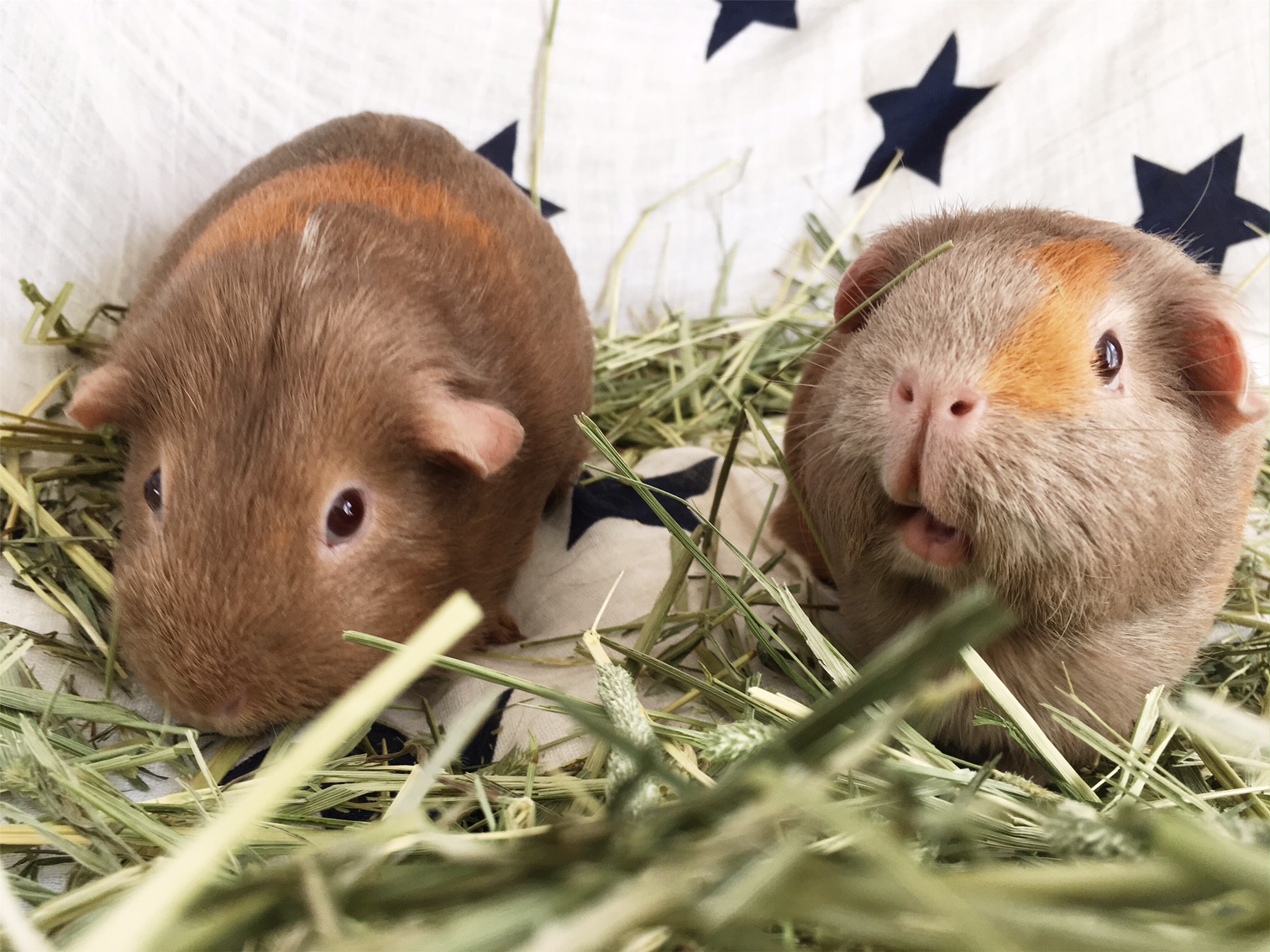Your guinea pigs weight is a key indicator of their health and well-being. As guinea pigs are prey animals, they will often hide symptoms of illness so a great way to keep tract of your guinea pigs health is by keeping a record of their weight.
How often should I weigh my guinea pig?
Weekly weigh-ins are ideal when it comes to keeping track of your guinea pigs weight however, don’t feel bad if you miss a week every now and then. The reason you want to keep a consistant track of your guinea pigs weight is so that you are alerted of any drastic changes – either weight gain, or weight loss. Your guinea pigs weight will fluctuate slightly from day to day as they eat and relieve themselves, but if you see a pattern of weight loss – seek vet treatment!
- New born guinea pigs should be weighed daily to ensure they are growing into healthy, plump piggies
- Sick piggies should be weighed daily – this is very important!
- Pregnant guinea pigs should also be weighed daily to ensure thorough monitoring of the mother and her pups
How much should a guinea pig weigh?
Just like with any other animal, the ideal weight for a guinea pig varies depending on their breed, gender, age and genetics. For example, a long haired guinea pig is going to weigh a little bit more than a ‘skinny pig’ which doesn’t have much fur at all.
The average weight of adult guinea pigs is:
- Adult males: Between 900g and 1300g
- Adult females: Between 700g and 1100g
Again, these are just averages and should be used to give you a rough idea as to what your guinea pig should weigh. Keeping a regular track of your piggies weight will determain what their ‘normal’ and ‘healthy’ weight is.
My guinea pigs has lost weight, what should I do?
Adult guinea pigs weight will fluctuate from time to time, and so it’s important is to do physical exams and document any changes in weight, mood, or eating and toileting habits.
- A sudden weight loss of 50g: Keep a close eye on your piggy, and begin to weigh them daily so you can monitor further weight loss or gain. If weight loss continues, seek veterinary treatment.
- A sudden weight drop of 100g should be treated as an emergency, as this can often indicate that your guinea pig is not eating as much as they ususally would. Contact your piggy savvy vet as soon as possible so your guinea pig can be assessed.
Sudden, in this case, would mean this weight is lost within the span of a few days to a week. In general, weight loss or gain between 5g – 20g will mostly be related to bowel movements, digestion and food intake. Any sorts of changes in weight are easily monitored when guinea pigs are weighed weekly, you will be able to see any trends of weight gain or weight loss, or sudden changes that may alert you to underlying health concerns.
How do I weigh my guinea pig?
The easiest way to weigh your guinea pig is with kitchen scales! They don’t need to be fancy, and either digital and mechanical scales will work perfectly fine.
Most guinea pigs won’t stay still on the scale, so popping them in a plastic container that is large enough to fit them while they are standing flat and comfortably will work great. You will want to weigh the container first, and then ‘tare’ the scale to ‘0’ before putting your guinea pig back in the container and recording their weight.
Weekly weigh-ins are ideal and can be recorded in a chart or book dedicated to your guinea pigs health records. Keeping a ‘Health Record’ book for your guinea pig is a great way to ensure you have a full history of their health and are able to spot any abnormalties when it comes to their health and weight. These records are also beneficial to bring to vet appointments should your piggie need a health assessment.




